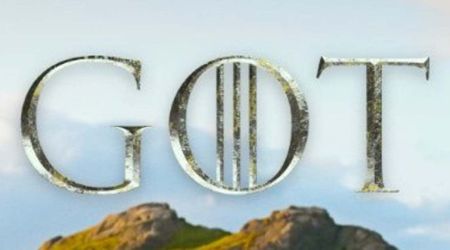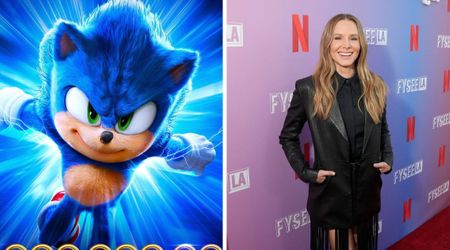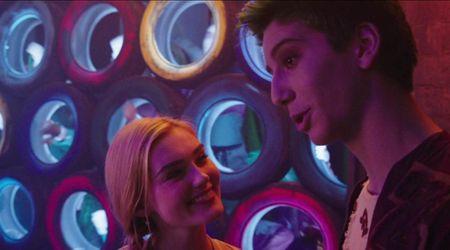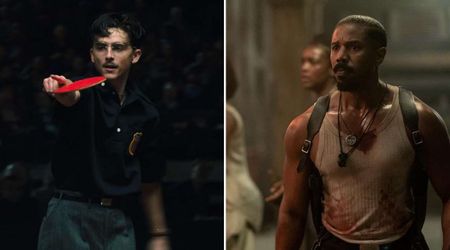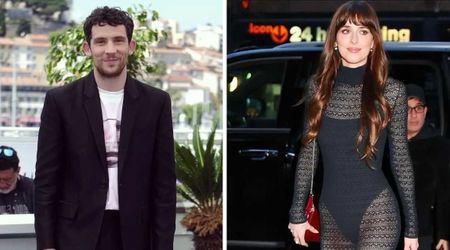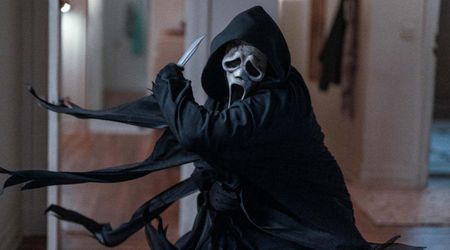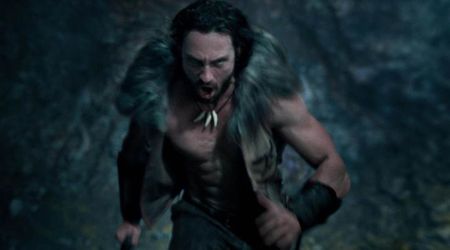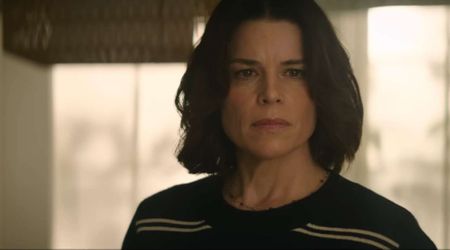The Hidden Angle | 'Jojo Rabbit' kicks powerful hatred in the gut by letting a child see his world anew

Let everything happen to you: beauty and terror.
Just keep going. No feeling is final
-- Rainer Maria Rilke
This quote captures the essence of Taika Waititi's film 'Jojo Rabbit'. In this film, set in 1945, in Hitler's Germany, Johannes 'Jojo Rabbit' Betzler (Roman Griffin Davis) faces both beauty and terror and in ways that move you or makes you laugh. He takes pride in being a member of Hitlerjugend and his mother Frau Rosie Betzler (Scarlett Johansson) calls him a Nazi who for the longest time couldn't believe that his grandfather did not have blond hair. He steals grenades, has scars on his face which brings his self-esteem down and the only person that he can speak his mind to is his imaginary friend who takes on the form of Adolf Hitler (Taika Waititi).
This imaginary friend is an amalgamation of all the conditioning that a child goes through when he belongs in any society. By placing Jojo in Germany, this friend also packs in on the hate that was prevalent in Hitler-ruled Germany. You must have read many reviews about how Waititi's film raised eyebrows or made the audience laugh at Nazis (which many felt was not appropriate). But is the movie really silly? To me, it seemed as if the film spoke about re-educating young minds that are brainwashed to believe lies that are propagated by people in power in a society.
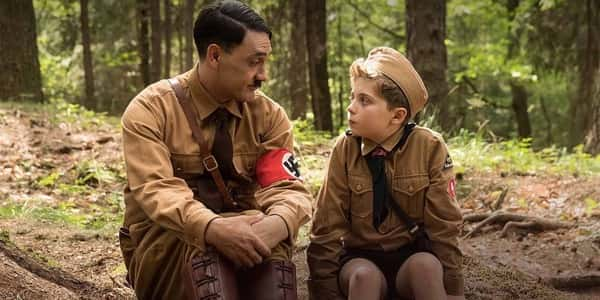
Initially, Jojo confesses his deepest, darkest feelings to his imaginary friend. Then he discovers his mother's secret. She has committed treason by giving space to a Jew in her house. The walls that are supposed to project Jojo and his mother, have now turned into a ticking bomb that might explode at any moment. All through his life, Jojo has been informed that Jews are monsters. So when he comes across a Jew for the first time, he is scared out of wits and all he sees is the picture of a monster that has been painted in his mind.
Jojo even tries to figure out a way to get the Jew out of his house without involving his mother. So he ends up asking Captain Klenzendorf (Sam Rockwell) and Finkel (Alfie Allen) what he must do if he did come across a Jew. He doesn't want to raise any suspicion, so instead, he comes up with a plan. To come to an agreement that both of them will keep what the other knows a secret. He also plans to get as much information as possible about Jews to publish a book that will help the Nazis in the future in capturing more of them.
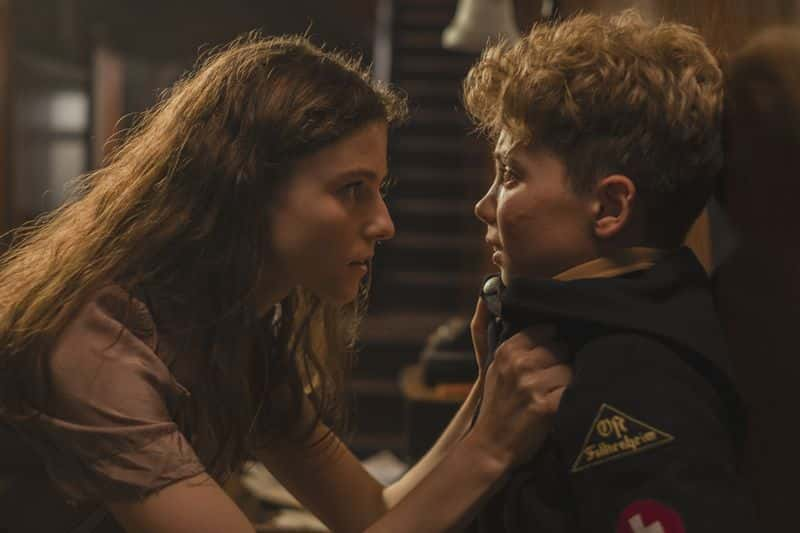
It is this attempt that enlightens Jojo about how mistaken he has been all this while about Jews. When he first begins to question Elsa Korr (Thomasin McKenzie) about where Jews live, what they like and dislike, everything he hears goes through a screen of judgmental ideas. Jews are monsters, they like ugly things so when he hears that they were animals who lived in caves, which is Elsa's idea of sarcasm, Jojo doesn't find it strange at all. But as time passes, Jojo begins to sympathize with Elsa's situation, and even writes letters to her which are duped as something written by her fiance Nathan.
This softens Elsa because she knows there is no way Nathan would have been able to write a letter to her. He is dead, after all. So the two bond, and just when Jojo begins to consider Elsa as his friend, he faces a loss. And all the scenes that seemed so silly initially -- of his interactions with his mother Rosie -- now take on a different meaning.
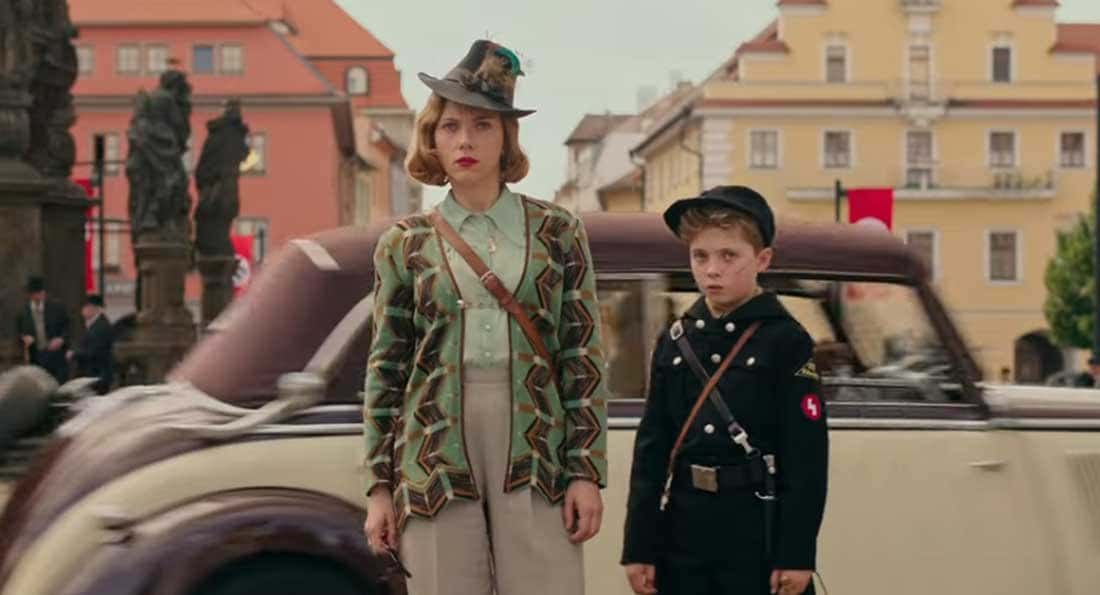
The first time Jojo comes across people being hanged for their crimes in the city center, his mother forces him to see the people. We see the scene from Jojo's perspective, so all we see is their shoes. Then we see Rosie in a following scene bend down to tie Jojo's shoelaces. She repeats this a few times in later scenes. One of them sees Rosie tell Jojo that it is important in life to dance. You see, dancing is an expression of freedom and here, it is symbolic of living life freely. This scene, we see Rosie begin to dance on a platform and again, from Jojo's perspective, we see Rosie's shoes.
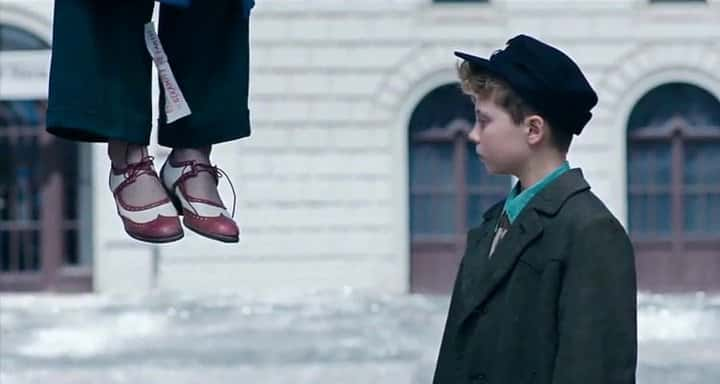
It is this very obvious stress on her shoes and his, that helps the scene that portrays the death of Rosie take the tone that it did. When Jojo walks by the city center again after his house is inspected by a few officers, he is happy that Elsa wasn't caught, but when he bumps into a pair of shoes and looks up, he sees his mother's pair of shoes. He holds on to her legs and sobs uncontrollably because all that is left of his very lively mother is a lifeless body. Jojo, however, learnt a very important lesson from his mother. To be able to dance when he is freed from the hate that he was filled with all this while.
Initially, Jojo's instinct is to stab Elsa and get it done with. While he did see his mother leave scraps of paper with 'Free Germany' written on them, he cannot move beyond the feeling that it was a Jew that brought death upon his mother.
Elsa, however, finally tells Jojo the truth about how Rosie saved her and this makes Jojo start questioning everything that he had believed in so far. His friendship with Hitler, his imaginary friend begins to fray. Then the Russians and the Americans arrive in his town. The war brings with it the truth about Hitler's death. How he ate a bullet and that final shred of belief that Jojo had in the system disappears when he sees his friend appear with nothing but hatred for Elsa and everything she stands up for.
When Jojo returns home from the war zone and lies to Elsa about Germany having won the war, there is the insecurity of being left behind. This too passes once Jojo takes a look at his friend who is taken over by hatred. This man who looks nothing like what Jojo is familiar with, tries to imprison Jojo within the belief system that he grew up in. He tries to get Jojo to befriend him again to try and see if the hatred can live on after his death, but Jojo has gone through pain and loss. He has also begun to fall in love and that love is what destroys the last hopes that this imaginary Hitler has. He is kicked by the balls out of Jojo's life and house and falls to his death from a window. Quiet poetic and satisfying because hatred must not win!
‘The Hidden Angle’ is a weekly column examining narratives, frames and sounds that add value to movies and shows but are not part of conversations surrounding their success or failure and we start with the Oscar 2020 hopefuls.

